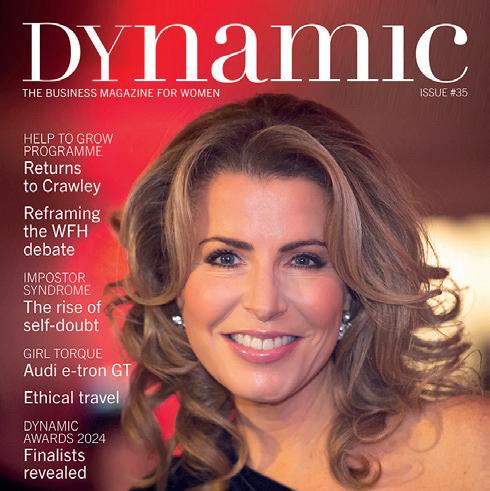
ALEX BAILEY
Winning is a process


THE DYNAMIC AWARDS 2025
Time to shine



WINE & DINE

Consistent wealth and passive income
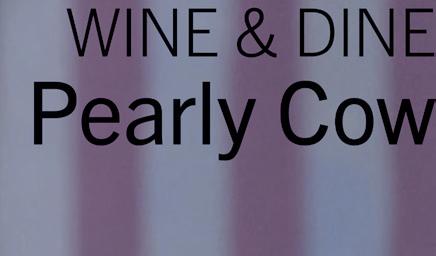










ALEX BAILEY
Winning is a process


THE DYNAMIC AWARDS 2025
Time to shine



WINE & DINE

Consistent wealth and passive income









Pearly Cow Immigration causing a skills gap


8
COVER STORY
Dame Emma Walmsley
Dynamic profiles the CEO of GlaxoSmithKline, and the only Briton in the top 15 of Forbes’ List of the World’s Most Powerful Women
20
FEATURE
The Alex Bailey Column
We are delighted to announce another big-hitter will be writing for Dynamic. Alex Bailey of Bailey & French specialises in cultural evolution, leadership, and performance, delivering impactful programmes
Chance is the first step you take, luck is what comes afterward.”
– Amy Tan
22
FEATURE
Plans to halve violence against women
The figures for violence against women and girls continues to rise sharply. David Gadd, Dr Caroline Miles and Professor Barry Godfrey outline their plan to halve this within a decade
5.8%
The percentage of investment received by female-led business in the UK in 2024, despite there being 19% of female-led companies
News
6 Upfront: The top international news stories involving women in business
14 In the Right Direction:
Good news stories from around the world
Spotlight
24 Natalie Mackenzie
Natalie is the CEO and Founder of the multi award-winning BIS Services, which supports families with brain injury or neurological illness
25 Dr Tania King-Mohammad Tania is an NHS doctor turned self-made property, wealth and business strategist and founder of Freedom with Tania
Feature
28 Gemma Tracy
Immigration changes creating a UK skills gap
Wellbeing
30 Natalie Mackenzie
Understanding memory. What can you do to help sharpen it?
32 Exercise
The brain-enhancing benefits of going for a walk
Further Reading
34 Ten books on mental health to read in 2025
Art Scene
36 Kellie Miller discusses the work of artist, Alison Coaten Travel
38 No.124 – Brighton’s newest seafront hotel
Fine Dining
42 The Pearly Cow, next door to No.124
What’s On
44 A brief snapshot of art and culture cross Sussex and Surrey

16 Pippa Moyle
Why a wellness budget should be part of your personal finance plan
Stand for something or you will fall for anything. Today’s mighty oak is yesterday’s nut that held its ground.”
– Rosa Parks
26 Dr Tania King-Mohammad How to create a business that generates consistent wealth (and passive income)



EDITOR: Tess de Klerk tess@platinummediagroup.co.uk



PUBLISHER: Maarten Hoffmann maarten@platinummediagroup.co.uk
MOTORING EDITOR: Fiona Shafer fionaas@platinummediagroup.co.uk
COMMERCIAL DIRECTOR: Lesley Alcock lesley@platinummediagroup.co.uk
EVENTS DIRECTOR: Fiona Graves fiona@platinummediagroup.co.uk
EVENTS MANAGER: Žaneta Bealing zaneta@platinummediagroup.co.uk
HEAD OF DESIGN / SUB EDITOR: Alan Wares alan@platinummediagroup.co.uk
WWW.PLATINUMMEDIAGROUP.CO.UK
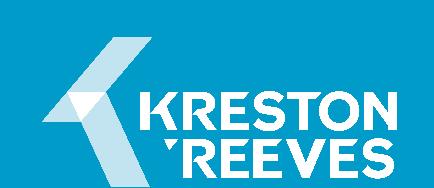














Welcome to this month’s Dynamic Magazine
We are delighted to welcome our second columnist to Dynamic - Alex Bailey, an HR champion who speaks worldwide on humanising the world of work. Th is month, Alex introduces herself to you, our readers. In Pippa Moyle’s column, she stresses the importance of happiness at work and how a wellness budget makes business sense on all levels.
Our Big Story looks at the life and ongoing career of the formidable Dame Emma Walmsley who became the fi rst woman to run a major pharmaceutical company in the UK. Meanwhile, Spotlight features two women who have forged their own unique paths.
The Guardian reported that 80 women were allegedly killed by men in 2024. Th is shocking statistic prompted us to explore suggestions from policy experts on how to tackle to sky-rocketing violence against women and girls in our feature. Th is is something we are planning to explore further during this year.
Further Reading brings you a curated list of mental health books to consider this year while the articles in Wellbeing aim to inspire. Our lovely Art section, as always, inspires with beauty and creativity.
We hope that you enjoy Dynamic this February.
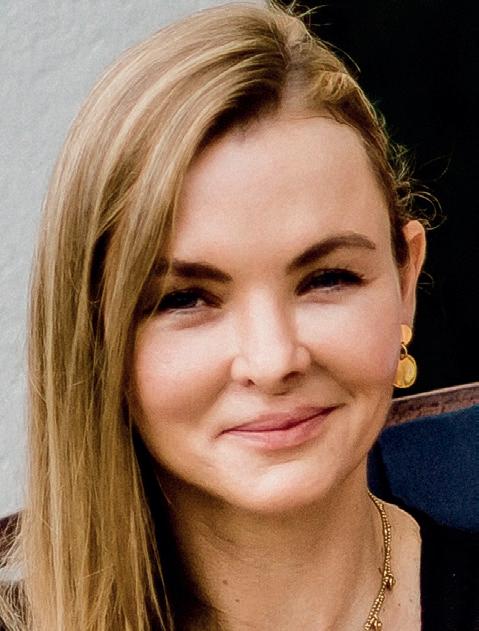
Editor, Dynamic Magazine tess@platinummediagroup.co.uk
PUBLISHER: Maarten Hoffmann maarten@platinummediagroup.co.uk
EDITOR: Tess de Klerk tess@platinummediagroup.co.uk
MOTORING EDITOR: Fiona Shafer fionaas@platinummediagroup.co.uk
COMMERCIAL DIRECTOR: Lesley Alcock lesley@platinummediagroup.co.uk
EVENTS DIRECTOR: Fiona Graves fiona@platinummediagroup.co.uk
EVENTS MANAGER: Žaneta Bealing zaneta@platinummediagroup.co.uk
HEAD OF DESIGN / SUB EDITOR: Alan Wares alan@platinummediagroup.co.uk
An art gallery is to open at the site of a former hardware store in Brighton, which closed after more than 100 years of trading. Dockerills, which had been operating in the city since 1915, closed in September last year. The store cited the Covid-19 pandemic, rising overhead costs and falling trade for its closure. Kellie Miller Arts (KMA) Gallery is to open at the Church Street site in April.
AllBright, the women-only members’ club with a five-storey townhouse in Mayfair, London, and once valued at £100 million, entered administration in the last week of January.
The networking and events business emailed members to say it was closing its doors. Some staff and business members did not learn of its administration until the following morning, and no mention was made on its website. It later announced that a Cain International investee company had acquired the organisation’s assets to enable the long-term growth of the business.
Teenage sisters have launched a business designing cricket kits for girls and women, fuelled by their frustrations at the inadequacy of what was available.
Honor and Cat Black are sisters from Chichester and pupils at Hurstpierpoint College. Honor, 17, started playing cricket at the age of seven and her younger sister Cat soon followed in her footsteps, along with her twin brother. Honor said: “It was 40 boys and me. It was always ‘Come on boys, let’s go…’. “When I moved to Westbourne [House School] I played on all-boys teams because there were no girls teams. The kit wasn’t great – it was see-through...!’

‘BIG FOUR’ STILL STRUGGLE TO MEET BOARDROOM EQUITY TARGETS
This ‘woe is me’ stuff is just ponderous. Get out of your own way, man”
Hannah Waddingham as Rebecca Welton, Ted Lasso
The UK wings of EY and PwC have missed their own targets for the proportion of women in their respective partnerships. Big Four rivals KPMG and Deloitte are on target for their own goals. While EY set the most ambitious goal – 40% women by 2025; it has hit only
28%. PwC is still 3% shy of its more modest 30% target. Meanwhile, KPMG passed its even more modest 25% target in 2022, reaching 29% in 2023. Deloitte reported in 2024 that 30% of its partners were women –attaining that figure a year ahead of target.
SUSSEX HOPEFUL ON ‘THE
An entrepreneur from Sussex is among the hopefuls vying for investment on the latest series of The Apprentice. Melica Moshiri, from Worthing, will be one of 18 candidates battling for Lord Alan Sugar’s £250,000 and mentorship in the 19th series of the hit BBC show. Melica hopes her AI tech recruitment business Skill Torch will win over Lord Sugar and secure her the major cash injection.
A former chemistry teacher who wants to inspire the next generation of scientists has been named as one of the UK’s top 100 female entrepreneurs.
Leonie Briggs, who is 42 and from Barnsley, set up her business Amazelab from her dining room table nearly in
2020. She now delivers workshops and educational material to get children interested in science, technology, engineering, arts and maths (STEAM). She said being included in Small Business Britain’s annual list of top female role models for 2025 had left her “over the moon and shocked”.
Feminism is not just about women; it’s about letting all people lead fuller lives..”
Jane Fonda
The construction and property industry will never close the Gender Pay Gap or achieve its full potential if it continues as it is, says Helen James, Women in Property South West Committee member and associate at JLL. This was the finding of national Women in Property research led by James and released last year, with 32% of the 699 respondents from the South West, and 86% female.
“FEMALE VOICES IN PROPERTY SECTOR NEED TO BE HEARD”
Meanwhile, women’s voices may be heard in thousands of estate agency branches every day but too few feature in national, local and industry blogs and property conferences, it has been highlighted.
The comment comes from Angharad Trueman, Head of Lettings at Andrews Property Group and the current ARLA Propertymark President. Trueman and the Women in Property group are calling for change. To that end, for 2025 they have published a fresh list of female industry spokespeople waiting in the wings.
AGAINST WOMEN
An “epidemic of violence against women and girls” in the UK is getting worse despite years of government promises and strategies, a highly critical report from Whitehall’s spending watchdog has said.
The National Audit Office report comes four years after a major government response to violence against women and girls (VAWG) was launched after the murders of Sabina Nessa and Sarah Everard.

Deloitte has listed the highest ranking women’s football clubs in the world by revenue for 2024/25. As with the men’s game, the list is dominated by English clubs.
1. FC Barcelona Femini
2. Arsenal Women
3. Chelsea Women
4. Manchester United Women
5. Real Madrid Femenino
6. Manchester City
7. Aston Villa Women
8. Eintracht Frankfurt Frauen
9. Liverpool Women
10. Paris Saint-Germain Féminine
€17.9m
€17.9m
€13.4m
€10.7m
€10.9m

Campaigners have reacted with fury to what they call the government’s “unjustified” rejection of compensation for women hit by changes to the state pension age. They say 3.6 million women born in the 1950s were not properly informed of the rise in state pension age to bring them into line with men.
Nine months ago, a parliamentary ombudsman recommended compensation of between £1,000 and £2,950 each for those affected. However, Work and Pensions Secretary Liz Kendall has unilaterally rejected this recommendation, and all other plans for financial payouts.
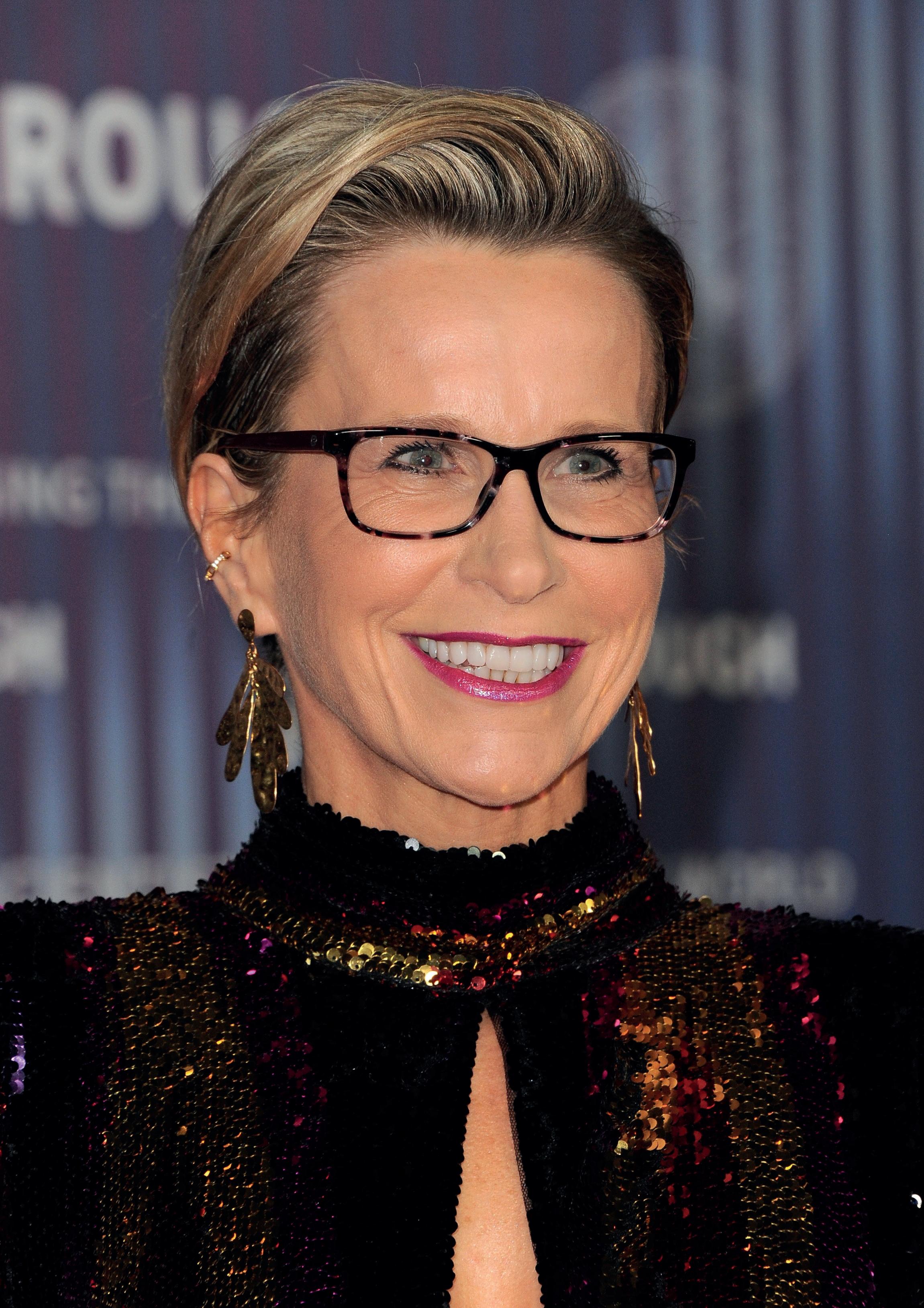
Forbes Magazine recently published its list of the world’s most powerful women. Ursula von Der Leyden, president of the European Commission, unsurprisingly retained her spot at the top of the list.
The top-ranked Briton on the list at no. 14 was Dame Emma Walmsley, CEO of pharmaceutical giant GlaxoSmithKline plc, who moved up one place from the previous year’s list.
Dynamic takes a look at the ongoing career of one of Britain’s most powerful business women.
Emma Natasha Walmsley was born in June 1969 in Barrow-in-Furness in what was then Lancashire, now Cumbria. She is the daughter of Sir Robert Walmsley and Lady Christina Walmsley. Sir Robert was Vice-Admiral in the Royal Navy, and served as Chief of Defence Procurement at the UK Ministry of Defence from 1996 to 2003, under both John Major and Tony Blair.
Emma was a boarder at St Swithun’s School, Winchester. She subsequently studied Classics and Modern Languages at Christ Church College, Oxford, where she gained an MA. Outside work, it is said Walmsley enjoys yoga. She married David Owen in September 1995 in London, and they have four children.
Upon leaving university, Walmsley worked at French cosmetic company L’Oréal for 17 years where she held a variety of general management and marketing roles in Paris, London and New York. The roles included being General Manager of Garnier-Maybelline.
In 2007 she moved to Shanghai as General Manager, Consumer Products for L’Oreal China, where she ran the company’s Chinese consumer products business, overseeing global brands including L’Oréal Paris, Maybelline and Garnier, as well as Mininurse, a Chinese skincare brand.
Given her rise at L’Oreal, industry insiders expressed surprise when, in 2010, she moved to GlaxoSmithKline plc (GSK plc). Many felt she had not finished her ascent at her previous company, and were tipping her for one of the most senior global management roles.
She entered GlaxoSmithKline in May 2010 as President of Consumer Healthcare Europe, rising in October 2011 to head its global consumer healthcare division as President of Consumer Healthcare Worldwide and a member of the executive team.
In March 2015 she became the chief executive officer of Consumer Healthcare. Walmsley was particularly involved promoting GSK’s greater territorial reach in emerging
GSK is the resulting company from several mergers over the past 180 years.
Glaxo was founded in New Zealand by Londoner Joseph Edward Nathan in 1873. The company specialised in producing dried baby milk. Meanwhile, Burroughs Wellcome & Company was founded in 1880, in London by the American pharmacists Henry Wellcome and Silas Burroughs. The Wellcome Tropical Research Laboratories opened in 1902.
The two companies merged in 1995.
In 1848, Thomas Beecham launched his Beecham’s Pills laxative in England, giving birth to the Beecham Group. In 1859, he opened its first factory in St Helens. By the 1960s, Beecham was extensively involved in pharmaceuticals and consumer products such as Macleans toothpaste, Lucozade and synthetic penicillin research.
John K. Smith opened his first pharmacy in Philadelphia in 1830. In 1865, Mahlon Kline joined the business, which 10 years later became Smith, Kline & Co. In 1891, it merged with French, Richard and Company, and in 1929, changed its name to Smith Kline & French Laboratories.

Smith Kline & French merged with Beckman Inc. in 1982, and changed its name to SmithKline Beckman. In 1989, SmithKline Beckman merged with Beecham Group to form SmithKline Beecham P.L.C.. The headquarters moved from the United States to England
Glaxo Wellcome and SmithKline Beecham announced their intention to merge in January 2000. The merger was completed on December 27th that year, forming GlaxoSmithKline (GSK), with the company’s global headquarters at GSK House, Brentford, west London. In 2024, GSK re-located to New Oxford Street, central London, taking over the recently-built Earnshaw Building.


markets. Under her leadership the consumer products division, one of the world’s largest consumer health groups with brands including Panadol, Voltaren and Horlicks, made up nearly a quarter of GlaxoSmithKline’s revenues.
She was also a non-executive director at international drinks and hospitality giant Diageo until September 2016. In September 2019, Walmsley joined the Microsoft board as an independent director.
She took over as CEO of GSK in April 2017, a role she still holds, succeeding Sir Andrew Witty, who had retired the month before. It made her the fi rst woman to run a major pharmaceutical company. At the time, analysts commented that Walmsley’s appointment could be seen as a signal that GSK would keep its consumer operation as a core part of its business.
Early in her tenure, in August 2017, Walmsley stated that her priority was for GlaxoSmithKline to become more adept at developing and commercialising new drugs. She announced a slimmed down set of priorities for drug development, setting a target of allocating 80% of pharma R&D capital to a maximum of four disease areas.
Th is led to some concern among commentators that the decision to hold its dividend would limit the amount available for R&D and acquiring intellectual property from other companies.
“Walmsley took over as CEO of the company in April 2017, a role she still holds. It made her the fi rst woman to run a major pharmaceutical company”
In January 2018, it was reported that Walmsley had replaced 50 of GSK’s top managers across the company’s businesses, and created a number of new roles in their place. Among the new hirees was Karenann Terrell, who joined the company as Chief Digital and Technology Officer from Walmart.
In the fi rst annual results since it spun off its consumer healthcare business Haleon in July 2022, GSK reported a pre-tax profit of £6.1bn for 2023, up by 14%. Turnover rose by 5% to £30.3bn, also boosted by steady demand for its shingles shot and HIV medicines.
A Financial Times profi le of Walmsley in 2016 reported that colleagues describe her as a ‘strong and dynamic’ (hence this magazine’s title) leader who mixes a personable style with a ‘steely’ focus. She inspires those around her with her work ethic.

“An upgrade is an upgrade, as they say, and that has all been achieved on Dame Emma Walmsley’s watch.”






GSK plc and the University of Oxford have announced that they have entered a new research collaboration focused on the potential of cancer prevention through vaccination. The GSK-Oxford Cancer Immuno-Prevention Programme will conduct translational research, exploring precancer biology to generate key insights on how cancer develops in humans that could inform new approaches to cancer vaccination. GSK will invest up to £50 million over a minimum of three years to support this early research.
Evidence shows that most cancers take years or even decades to develop from normal cells to precancerous cells (or precancer) to cancer. Oxford University has world-leading expertise in the study of precancer biology, including the identification and sequencing of neoantigens, or tumour-specific proteins that prompt the immune system to recognise cancer. This unique focus could help target the vulnerabilities of precancerous cells through an active intervention like a vaccine or targeted medicine to prevent them from progressing to cancer.
“She sets clear objectives and there’s lots of KPIs [key performance indicators] to measure delivery,” said one. She is renowned for her combination of empathy and attention to performance, paying close attention to talent development whilst being “ruthless with underperformers”.
Dame Emma Wlmsley has some considerable international standing. Various business magazines have placed her high up in their annual rankings of the world’s most powerful women.
She was appointed Dame Commander of the Order of the British Empire (DBE) in the 2020 Birthday Honours for services to the pharmaceutical industry and business.
In 2024, she ranked as the fourth-highest woman in Fortune Magazine’s list of ‘100 Most Powerful People’, up from seventh the previous year, and a list she found herself top of in 2018, and second in 2017 and 2019. One has to stay moving in order to remain at the top.
Meanwhile, Walmsley ranked 14th in Forbes list of “World’s 100 most powerful women”, one place higher than the previous year, and once again the highest placed Briton.
In May 2024, it was announced that Walmsley’s annual pay package jumped by over 50% to £12.7m, mainly due to a higher share bonus payout reflecting the British drugmaker’s improved performance, and a 51% increase from her
“Walmsley ranked 14th in Forbes list of ‘World’s 100 most powerful women’ the highest placed Briton”
previous year’s remuneration. It made her the second-highest paid CEO of a European pharmaceutical company.
The huge pay rise made her one of the highest-paid executives in the FTSE 100 index of leading shares, a week after it emerged that her counterpart at Britain’s biggest pharmaceutical group AstraZeneca, Pascal Soriot, received a £16.9m pay package. She is certainly the highest-paid among the 10 female FTSE 100 chief executives.
While her combined pay was at £12m, her fixed pay – comprised of salary, benefits and pension – fell slightly to £1.6m, while her annual cash bonus increased to £3.8m from £3.1m, according to GSK’s annual report.
An additional ruling in 2024, which was also unhelpful to GSK, was the decision by US health officials to narrow the age range for use of new vaccines for the aforementioned Arexvy. That unexpected move knocked a pound off the share price at the time. It also gave the market an opportunity to criticise GSK’s overall improvement. Vaccines – the sector investors were interested in – were forecast to have lower growth in sales this year because of the RSV ruling setback.
In 2024, she ranked as the fourth-highest woman in Fortune Magazine’s list of ‘100 Most Powerful People’
The final tally is achieved by also receiving £7.3m from performance-based long-term share awards, compared with a £3.7m payout the year before, as a higher proportion of share awards vested last year and at a higher share price, increasing their value.
In its annual report, the company said: “Emma Walmsley’s remuneration for 2023 reflected excellent and sustained delivery against stretching performance targets, aligned to shareholder interests and value creation.
“This includes the company’s performance last year, where GSK delivered very strong sales, operating profit and earnings per share growth, and continued pipeline progress including the blockbuster launch of our new respiratory syncytial virus (RSV) vaccine, Arexvy.”
GSK’s Arexvy jab was the first vaccine approved (in summer 2023) against RSV in older adults, which causes thousands of deaths and hospitalisations in the UK each year, more than influenza. The RSV vaccine, launched in the summer, has already become a blockbuster (defined as a drug with at least $1bn annual sales), racking up £1.2bn sales in four months.
For more than two years, GSK has been in litigation in the US over Zantac, the heartburn drug that powered the rise of old Glaxo in the 1980s and 90s. The latest setback from GSK’s point of view was a ruling from a Delaware judge in June 2024 that allowed plaintiffs, who claim that the drug is linked to their cancers, to take their case to jury trial.
Until that point, investors had gradually been becoming more confident that GSK and the other pharma companies that sold and marketed the drug (all of whom dispute the links to cancer) would contain liabilities and legal costs to easily absorb sums. But Delaware represents the vast bulk of Zantac cases; it is a huge case none of them are going to be able to ignore.
But this does all feel like an overly gloomy way to view the new-style GSK, and some cynics may consider it a personal attack on Walmsley herself. A British pharmaceutical company doing well in the US? And led by a woman? Whatever next?
Legal clarity probably will not emerge until well into 2025, so it is perfectly possible that the stock market will continue to take the view that there are just too many uncertainties at GSK. But the performance on the ground and in the labs appears genuinely to have turned a corner.
GSK is not alone in the pharmaceutical sector in upgrading forecasts, but there is (finally) a glimpse of momentum there. And an upgrade is an upgrade, as they say, and that has all been achieved on Dame Emma Walmsley’s watch.

“It is during our darkest moments that we must focus to see the light”
Aristotle Onassis
The Democratic Republic of Congo aims to establish the world’s largest tropical forest reserve, the Couloir Vert (‘Green Corridor’), spanning an area the size of France. This community-managed protected area will conserve the Congo Basin’s vital forests and peatlands, a crucial carbon sink and biodiversity hotspot home to species like eastern lowland gorillas. While praised by the Rainforest Foundation UK, concerns exist over limited consultation with local
communities, as 31 million people will live within the reserve. The initiative is backed by the EU and the World Economic Forum.

Mexican President Claudia Sheinbaum has used her international diplomacy and negotiation skills to persuade US President Donald Trump to delay, by a month initially, introducing the own-goal-inducing 25% tariffs across a range of goods between the countries.

Sheinbaum has the support of Canadian Prime Minister Justin Trudeau, whose country has been threatened with the same tariffs.
The UK’s electricity grid was at its cleanest in 2024, driven by a surge in renewable energy and the closure of its last coal power station. CO2 emissions per electricity unit dropped by over two-thirds in the past decade. Fossil fuels accounted for only 29% of the UK’s electricity generation, the lowest ever, while renewables reached a high of 45%.
The UK became the first major economy to eliminate coal-fired power in 2024. Experts have hailed the progress but warned that achieving full grid decarbonisation by 2030 will be a demanding task.
Aid deliveries to Gaza have surged following a ceasefire and hostage release deal between Hamas and Israel. Over 900 aid trucks entered as the truce, initially set for six weeks, held. The UN called the developments a “ray of hope” but highlighted concerns over Gaza and West Bank’s territorial continuity. UN SecretaryGeneral António Guterres welcomed the progress, urging action on long-standing regional challenges. The agreement has bolstered humanitarian efforts amid complex political tensions.


“Just don’t give up trying to do what you really want to do. Where there is love and inspiration, I don’t think you can go wrong.”
Ella Fitzgerald
A recent study of English pensioners suggests that 70-year-olds today enjoy significantly better health than those a decade ago, supporting claims that ’70 is the new 60’. Researchers assessed cognitive, locomotor, sensory, and psychological capacities rather than focusing solely on diseases. Data from the English Longitudinal Study of Ageing showed that a 68-year-old born in 1950 had comparable functional abilities to a 62-year-old born 10 years earlier.

Professor John Beard, the study’s lead author, noted the impressive improvements, though he cautioned that rising obesity rates and other challenges might reverse these trends in the future.

Honolulu has won US Supreme Court approval to sue major oil firms like Shell and ExxonMobil for allegedly misleading the public about climate change. The 2020 lawsuit claims the companies downplayed their products’ risks, causing climate-related damage to Hawaii, including rising sea levels
Thailand has become the first Southeast Asian nation to legalise same-sex marriage, with the Marriage Equality Act taking effect immediately. Same-sex couples now enjoy the same financial, adoption, and inheritance rights as heterosexual couples.
Prime Minister Paetongtarn Shinawatra hailed the law as a victory for equality, stating, “Love knows no boundaries.”
Thailand joins Taiwan and Nepal as the third Asian country to legalise marriage equality, a move widely celebrated as a landmark step for inclusion in the region.
threatening infrastructure. The firms argued for federal jurisdiction, but the court dismissed their appeal. Honolulu’s case is among 26 similar lawsuits in the US, aiming to hold oil companies accountable, though none have yet gone to trial.
In Tanzania, an entrepreneur has tackled waste management and rural education by creating backpacks with solar panels to power reading lights. Made from repurposed cement bags, the Soma Bags initiative has garnered support from the UN Development Programme for its dual environmental and educational impact. The company, founded by Innocent James, employs 85 rural workers and produces 13,000 backpacks monthly, though demand remains unmet. Inspired by a professor’s solar-powered jacket, James started sewing solar panels onto bags in 2016. The backpacks have transformed children’s lives by providing light to study after dark, reducing reliance on dangerous and costly kerosene lanterns.

A £15 million government fund aims to redistribute thousands of tonnes of surplus fresh produce to those in need across England. Each year, approximately 330,000 tonnes of edible food are wasted or used as animal feed before leaving farms. Many farmers wish to see this food go to people, but charities often
lack the resources to collect and distribute it. The new scheme will provide grants starting at £20,000 to support non-profit organisations involved in food redistribution. The initiative is set to tackle waste while addressing food insecurity, ensuring that surplus food reaches those who need it most.

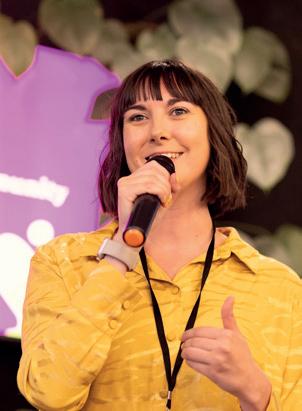

Pippa
Moyle, CEO and Founder of the City Girl Network on the importance of you and yours being happy at work – even if it costs


January has passed as it always does – resolutions, goal setting, vision boarding, new me-ing. Less booze, more kefir; less chicken, more tofu. Personally, I sit in the camp that loves the fresh starts that the first few weeks of January bring, even if I know that it’ll all fall away as fast as it began.
This year, however, the resolution posts have been met with an undercurrent of change. Out with the motivational quotes taken from a canvas at Homesense, in with the realistic approach to how we really want to self-improve. TikTokers are calling it ‘de-influencing’; I prefer the term ‘humanising’. I’m sure you’ve seen the social posts I’m referring to – calling out the pressure to ‘keep up with the Joneses’ or the Kardashians, depending on your generation.


At the City Girl Network, we’ve seized this new appetite for realism and built a campaign that flips self-improvement on its head. When you strip back the marketing, two core themes shine through the self-improvement space: wellness and money. It makes complete sense. They’re the two core building blocks for leading a fulfilling life that people so often fall down on. They’re also the two that are solely impacted by the decisions you make.
There are generations of barriers still standing strong when it comes to how women approach wellness and money. There’s the concoction of discrimination in the UK’s Gender Health Gap; medical gaslighting, 2.5% funding into reproductive health, exclusions from drug trials and the terrifying reality that women are 32% more likely to die from a male surgeon than a female one.
Then there’s the Gender Pay Gap (7% last year), and the huge psychological repercussions of being constantly
reminded that anyone who isn’t a white cis-male will always struggle with money – and anyone who’s disabled, part of the Global Majority, LGBTQIA+ and working class will struggle even more.
The way that I see it, there’s only one radical act that women can make to start crashing these barriers down: take control.
Much like you would for your house, bills, kids, pets and savings, we’re encouraging people to carve out a Wellness Budget into their personal finance plans for 2025 (and beyond). This includes fitness, self-care, mental health, nutrition and hobbies – products and services that you used to take out of your disposable income.
“There are generations of barriers still standing strong when it comes to how women approach wellness and money. ”





“An employee wellness budget targets issues such as employee retention, sick days and productivity”


Reformer pilates, hypnotherapy and Quinton minerals don’t stand a chance when they’re up against a bottomless brunch, a gift for a friend or an instant gratification fix. When you carve out a financial space for well-being enhancement, you’re reducing the emotional impact of a choice that has two different ROIs.
Let’s look at this from a business perspective: businesses of all shapes and sizes are separating employee wellness budgets from rewards and office parties. This is because they both have different ROIs.
In the simplest terms, rewards and incentives (i.e. office parties) offer a consistent short-term motivator for employees to hit targets and improve collaboration. An employee wellness budget targets issues such as employee retention, sick days and productivity. When executed well, they’re targeting two core issues simultaneously and resulting in a happier workforce – and a calmer HR manager.


But there’s a big wellness-shaped elephant in the room that we need to address: the fundamental lack of education when it comes to the different ways that we could invest in our health. Yoga, whilst a popular starting point, has a terrible reputation for gatekeeping information on the practice. You only need to Google “How many types of yoga are there?” to see that for yourself.
Then there are acronyms like EMDR, NLP and CBT that have reached mainstream public consciousness through snippets of information online. There’s a constant risk of misinformation, misunderstanding and misuse of funds. And women are two and a half times less likely to ask questions due to a lack of self-confidence. We’re building a knowledge resource centre on our website to start to tackle this issue.
No one size fits all, no Wellness Budget will be the same, but the creation of one will spark a resolution we can all have in common: the radical act of prioritising ourselves.



Pippa Moyle CEO + Founder


Our Communities: Brighton, London, Manchester, Bristol, Bath, Leeds, Edinburgh, Birmingham, Worthing, Liverpool, Newcastle, Chester, Milton Keynes, Oxford, York, Cardiff, Glasgow, Perth and Rural Sussex
























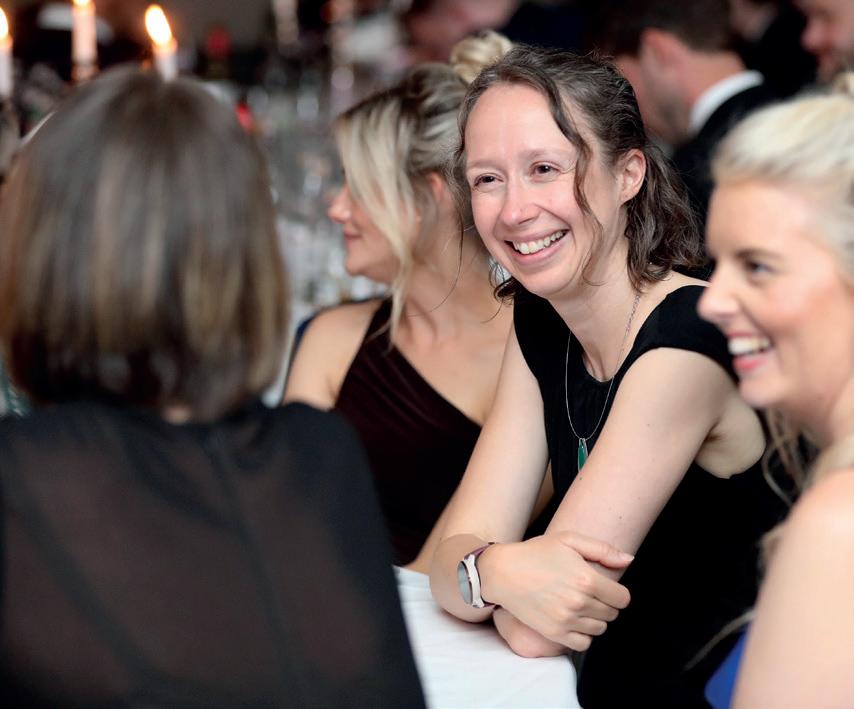




















“It is crucial that we honour and showcase such talented women in order that they are recognised and so that we can provide role models to the next generations…”



















Alison Jones, Partner, Kreston Reeves





“It was wonderful to be a part of an event that was lled with so many inspirational businesses that grow and contribute to our community…”




Rachel Watkyn OBE CEO, Tiny Box Company VIEW








The annual event recognises, rewards and celebrates the remarkable achievements of businesswomen across the South East.

Entry is open to businesswomen with an office based in either Sussex, Surrey, Kent or Hampshire. Entrants can either nominate themselves or be nominated by someone else.
★ 18 categories
★ £25 per entry
★ Maximum: three entries per person
★ Awards ceremony: May 8th 2025





















Business Growth Award
Businesswoman of the Year
MD of the Year
Community Hero Award
Company of the Year

Employer of the Year
Innovator of the Year
Inspirational Award
Large Business of the Year
SME Business of the Year
Sustainability Champion Award
Future Talent of the Year
Best New Business Award
Professional Services Award
Property Professional of the Year
Women in Tech Award
Best Customer Service Award
Lifetime Achievement Award














We are delighted to have Alex Bailey contributing to Dynamic. She is a Global CEO and Co-Founder, with 20+ years of expertise in HR leadership, psychology, coaching, and organisational change. She specialises in cultural evolution, leadership, and performance, delivering impactful programmes globally while speaking at international events.

This really struck me last year while listening to Venus on Chris Evans’ radio show on Virgin. It became my latest Post-it reminder stuck on my PC to read every time I might get a knockback or a limiting belief sneaks in.
I’m fed a lot of social posts highlighting the success of young entrepreneurs hitting it big overnight, awards and lists for the next rising star under 30, women to watch, etc, but that is misleading and unhelpful. Success isn’t something that happens quickly. Our human life’s work over decades of wonderful, unique experiences, challenges and opportunities, and how we recognise and celebrate small steps of success over time gives us the most sustainable human approach to growth and learning.
I love seeing my personal icons such as Demi Moore, Nicole Kidman, Kate Winslet, Drew Barrymore, Reese Witherspoon, and Pamela Anderson demonstrating this by owning their image and bringing their life experiences in age into their roles and words to share how they’ve grown over the many years in the public/performance eye. Their recent words are increasingly raw and brave. In a world of possible, sudden cancelling, I know as a leader that it takes more courage to stand up in the crowd, call out the realities we face, and speak our truth out loud.
Maybe it’s just me, but I’m seeing and hearing more women standing in their own space and demonstrating the determination and consistency over time that is needed to succeed. It’s not exceptional for women at all, but my experience of becoming a leader over time has meant embracing the underestimation I’ve experienced; the surprise of what I’ve achieved.
Reflecting on this, I recognise it may be because I’m not one to shout about my accomplishments for whatever reason. I don’t think I’m alone in being nervous about being judged; after all, pride comes before a fall, be seen and not heard –and all that. So… deep breath in, here goes:
Yes, I’m a pioneer in the application of Positive Psychology,
“I’m sharing what works for me, what has got me here and how I’m facing my next chapter stronger.”
Yes, I’m a speaker and moderator of live, critical conversations on main stages across the world with audiences of up to 650 in person and 35,000 online,
Yes, I’m a global expert on all angles of a human workplace
AND...
Yes, I am the owner and CEO of a global consulting business that has changed hundreds of thousands of people’s lives positively every year for the past ten years.
I’ve gone through some harrowing challenges, sleepless nights and gut-wrenching times getting my business through those past ten years. I’ve done it all with two little girls in tow who are now teenagers and need their mum more than ever (and need a great role model).
Now, with a delivery team of 130+ across all regions of the world, we are currently delivering to 40 different organisations per month and I’m not stopping here. I have a voice with wisdom from my experience and intuition to share what has worked for me, and how I failed repeatedly and learned and grew each time I got up and carried on.
Cringey and cheesy as it may feel, I’m sharing what works for me, what has got me here and how I’m facing my next chapter stronger. In the words of Mel Robbins, “I’m letting them judge me, I’m letting them doubt me, I’m letting them underestimate me, whilst I let me focus on expressing my truths and step into my own space.”
Follow me with Dynamic, on LinkedIn for professional and work-related posts, and on my new Instagram account for how my personal journey has shaped me to dress, style, behave and learn the way I do now find out what inspires me and motivates me every day to focus on dreaming bigger than anyone imagined.
A vanity project? Or a new pathway of sharing that paves the way for others to step into their own space more confidently, more authentically and build the foundation blocks of success and winning that is indeed a process.

Alex Bailey
Join me on my journey of bold new steps, letting go of all that’s held me back. Being here and writing about it openly in a business landscape is a first step.
Email: Alex@baileyandfrench.com www.baileyandfrench.com Insta @alexbaileybackstage Follow me on LinkedIn: www.linkedin.com/in/ alex-bailey-26562b2/

“In 2022/23, 27% of women said they had been victims of sexual assault”

TAccording to The Guardian, 80 women were allegedly killed by men in the UK in 2024. This harrowing number means that, on average, a woman was murdered by a man every four days last year.
he Government has committed to halving violence against women and girls (VAWG) in a decade, but plans to deliver on its commitment “remain unclear,” according to experts on the subject.
However, in an article published by the University of Manchester’s policy engagement unit, Policy@Manchester, Professor David Gadd, Dr Caroline Miles, and Professor Barry Godfrey argue that achieving this goal “is not the mission impossible it might appear” and that grassroots education and re-education must be at the core of tackling this pervasive problem.
They point out that many new forms of gender-based violence (GBV) have emerged in recent years – some digital, like ‘revenge porn’ – some physical, like spiking – and many blending the virtual and the real – like stalking.
Further, according to Crime Survey for England and Wales figures from 2022/23, 27% of women said they had been victims of sexual assault – up sharply from 19.9% in 2013/14.
“The standard solutions to tackle VAWG – more policing, bringing perpetrators to justice, imprisoning high-risk, high-harm predators – are unlikely to dent these troubling statistics,” the academics write. “Only one in 23 domestic abuse offences, and fewer than three in 100 rapes recorded by the police result in a conviction. Moreover, the vast majority of GBV is never reported to the police.”

In a series of policy recommendations, the University of Manchester academics advocate “long-term investment in trauma-informed preventative work with boys and young men” to enable the Government to achieve its mission to halve VAWG. But, they add, “Th is needs to be done in the context of wider public debate about men’s behaviour at home, in public spaces and the workplace.”
Gadd, Miles and Godfrey also highlight emerging evidence which suggests that the attitudes of men and boys, and among subgroups likely to contain higher percentages of repeat perpetrators, can be improved “through well-designed social media interventions.”

Gadd, Miles and Godfrey believe that the way to shift the dial on this issue is to identify repeat offenders and understand what could be done at earlier stages to prevent them from becoming so dangerous.
“Research, along with the findings of domestic homicide reviews, routinely reveals histories of complex trauma in the lives of the most dangerous men, often deriving from experiences in childhood, institutional care and custody, and contained precariously by the consumption of alcohol, prescription drugs and illicit substances,” they explain. “Many perpetrators have also experienced seeing their mothers physically and/or sexually abused by fathers and stepfathers whom they wish to be nothing like.”
They write, “A core challenge is how to sustain those conversations long enough that resistance is worked through to the point that opposition on the grounds that ‘not all men rape, stalk, or coercively control’ is turned into a rallying cry to ensure even fewer men do.”
The authors underline the importance of “political leadership to engender societal level change” if the Government target is to be met. “Resourcing, upskilling and supporting the criminal justice, education, health and Voluntary, Community, Faith, and Social Enterprise (VCFSE) sector will be important,” they argue. “But this will only work if we also have the difficult national conversation that is long overdue.”

They conclude, “We must recognise that telling men what they want to hear – that they are OK because they are nothing like the really bad guys – is not the same as exploring with them what they might need to ensure the women they work with, live with and care about no longer have to endure the ‘national emergency’ that reflects current levels of violence against women and girls.”
‘How to halve violence against women and girls,’ by Professor David Gadd, Dr Caroline Miles and Professor Barry Godfrey is available to read on the Policy@ Manchester website.

“Only one in 23 domestic abuse offences, and fewer than three in 100 rapes recorded by the police result in a conviction”

In our exclusive Spotlight feature, we highlight women who are doing good things in their community. They’re not always seen but we think they should be.
Natalie is the CEO and Founder of the multi award-winning BIS Services, which supports families with brain injury or neurological illness
Iam a brain expert and business strategist for health and wellbeing businesses, helping health and social care providers grow successful online businesses. I have over 20 years of experience as a cognitive rehabilitation therapist.
I always knew I wanted to work in some field of psychology. I had originally considered forensic psychology and prison settings. However, only one day after graduating with my BSc in Psychology, I had a successful job interview for a brain injury support worker role in the community in SE London.
My career progressed quickly and I became assistant manager of the Brain Unjury (BI) service and managed to study for my MSc in Cognitive Neuropsychology full-time, alongside working full time.
Then, unexpectedly, the charity I was working for closed and so my business was created in the space of a weekend back in 2006. I was 24, with no idea of business or money. I didn’t pay myself for months but I just had this sense that it was going to work out. I’ve learnt that in business, there are challenges to overcome constantly, from recruitment, cashflow, growth, and all that comes with it. But what remains at the core is that the people I work to support have far more challenges to overcome after their brain injuries compared to those I face when running a business.
The BIS Services (Brain Injury Support and Cognitive Rehabilitation) has developed into becoming the leading provider of cognitive rehabilitation in the UK. Making the decision to connect globally with more people online meant

I could expand the business by providing education and programmes to those unable to access them in their local area.
I’m grateful that the kind of work I do totally varies. The service is very busy, but I have a great team who keep the boat sailing smoothly whilst I run and strategise our programs and growth; we have nearly 70 staff to manage as well as the clients.
I plan for the company to have expanded further across the UK and internationally and will be leaders in brain injury training provision.
www.thebraininjurytherapist.co.uk
“I was 24, with no idea of business or money. I didn’t pay myself for months but I just had this sense that it was going to work out”
Dr Tania King-Mohammad is an NHS doctor turned self-made property, wealth and business strategist and founder of Freedom with Tania
From an early age, I knew I would be a doctor - many of my father’s family were doctors and I wasn’t really aware of any other options for a career as I grew up. I started medicine at medical school in 2004 and although I enjoyed it, it didn’t prepare me for the reality of what it is to be a doctor. There was the consistent stress and responsibility - it was a job you could never truly switch off from. I’d often see my colleagues living almost their entire lives at the hospital; I just knew that life wasn’t meant for me.
Losing my mum was a turning point and I made a vow to change my lifestyle not just for me - but to honour the freedom and adventures she had always craved but didn’t get the chance to have.
The freedom I was after required a much higher income, so in 2015 my husband and I did our first property course (I had no knowledge at all prior to this). We had no big amounts of money ourselves; when we bought our first home (the only one we owned) in 2012, we had to borrow from friends and family to scrape together £7,000 for the deposit. That’s all we started with. But when we decided to sell our family home as we were expecting our first baby, instead of buying another, we used that money to start investing in property.

me for advice. This is where the idea for my coaching business was born. It was the opportunity to make the freedom-based life I aspired to a reality.
Freedom with Tania was founded in 2021 and has gone from strength to strength. I now mentor people and entrepreneurs in business growth and strategy, focusing on scaling their businesses with high-ticket and premium sales strategies, as well as property investing and creating true, generational wealth.
“Losing my mum was a turning point and I made a vow to change my lifestyle not just for me - but to honour the freedom and adventures she had always craved”
The portfolio grew and I managed to replace my medical salary within months. Since I’d documented the process on social media, I’d gained followers who then contacted
I’ve helped people change their lives forever and go from very little money, perhaps a single parent and in a fulltime job they hated, to building a business, leaving their job and becoming a full-time entrepreneur. I’ve just published my first book, The High Ticket Method, and love helping other people create the freedom I too was able to achieve.
www.taniakingmohammad.com

By Dr Tania King-Mohammad
Building a business that generates consistent wealth is the ultimate goal for most entrepreneurs. But the journey doesn’t stop there. Once you’ve created a profitable business, it’s crucial to make your money work harder for you. Th is article outlines how to set your business up for wealth-building and how to invest in ways that allow your income to multiply over time with minimal effort.
1. MASTER YOUR MINDSET FOR WEALTH
A wealth-building business starts with the right mindset. Wealth isn’t just about money; it’s about value, opportunity, and belief in yourself. If you’re not already working from a place of abundance, now is the time to shift your thinking.
Wealth is a byproduct of who you become in the process of building your business. Your mindset influences every aspect of your business, from pricing to marketing. Believe that wealth is available to you and that you deserve it. Many entrepreneurs struggle because they don’t think they’re worthy of success—this is the fi rst barrier to break.
Self-investment is key to levelling up. Whether through courses, mentorship, or personal growth, investing in yourself enhances your thinking and business.
2. CRAFT A HIGH-TICKET
One of the fastest ways to build wealth is through a high-ticket offer. Instead of relying on small sales that require high volume, a high-ticket offer lets you work with fewer clients while making more money.
Your offer must provide extraordinary value by solving big problems, delivering major transformations, or fi lling a unique market gap. Clients will pay premium prices for an offer that addresses a true pain point and delivers real results.
Th is applies to both service- and product-based businesses. For example, Fortnum & Mason turned the generic concept of a Christmas hamper into a premium product priced at £6,000. High-ticket strategies can be applied across industries.
Sales shouldn’t feel like ‘selling’—it’s about serving. The more you believe in your value, the more effortlessly clients will be drawn to you.
3. LEVERAGE ETHICAL SALES AND MARKETING
Generating consistent wealth requires a sales strategy that works for you. Ethical sales focus on serving clients, not pressuring them into unnecessary purchases. It’s about creating connections and offering solutions.
To generate predictable income, build a content funnel that attracts and nurtures ideal clients. Use problem-awareness content to highlight pain points, connection-building content to position yourself as an expert, and activating content to encourage action— such as purchasing your high-ticket offer.
A streamlined sales process ensures a steady flow of new clients, leading directly to wealth.
With your offer and sales funnel in place, the next step is systematisation. Many entrepreneurs shy away from systems, but they are what give you freedom. Systems ensure your business runs smoothly with minimal input from you.
“ The more you believe in your value, the more effortlessly clients will be drawn to you.”




“ Your business is a tool for wealth creation, but true wealth comes from the empowered choices you make.”
Automate processes like sales, email sequences, and scheduling to create consistent wealth generation. With effective systems, you can focus on high-level strategy while your business operates efficiently in the background.
Systems not only improve operations but also enable scalability without increasing workload.
As your business grows, think beyond active income. To build long-term wealth, allocate a portion of your profits to investments that generate passive or semi-passive income.
For example, investing in property creates passive income. Once a property is refurbished and occupied, it generates ongoing revenue with little effort. Over time, this provides a steady cash flow that can be reinvested.
Investing isn’t just about increasing your bank balance— it’s about making your money work for you. Whether through stocks, bonds, property, or digital products, choose investments that suit your level of involvement. As these grow, they’ll support your wealth, even if you step back from daily business operations.


Wealth-building isn’t just about transactions; it’s about relationships. Your most successful ventures will be those supported by a strong network of like-minded, successful people.
By nurturing relationships with clients, peers, and partners, you create a community that amplifies your impact and wealth. Provide continued value to clients and build partnerships that complement your skills. A growing network increases visibility and influence, leading to more opportunities and income.
Visibility is crucial to creating consistent wealth. The more people know about your offers, the more opportunities arise. Regularly show up through social media, speaking engagements, and content creation to position yourself as an expert.
Increased visibility attracts more clients, collaborators, and business opportunities. Over time, this strengthens your reputation and makes scaling your wealth easier.
Creating a business that generates consistent wealth requires strategy, dedication, and the right mindset. By developing a high-ticket offer, automating processes, and focusing on high-impact actions, you’ll set yourself up for success.
However, lasting wealth comes from more than just business growth. Allocate profits toward investments that generate passive and semi-passive income. Th is allows your wealth to grow independently of your daily efforts.
By combining a strong business strategy with smart investments, you can build a foundation of wealth that supports your lifestyle and continues to grow. Take action, invest in yourself, and create the business and life you truly desire. Your business is a tool for wealth creation, but true wealth comes from the empowered choices you make.



































Tania King-Mohammad is a former NHS doctor turned wealth strategist and high-ticket sales mentor for CEOs. She helps CEOs build six and seven- gure empires with ethical, premium sales. For more information on Tania visit: www.taniakingmohammad.com

By Gemma Tracey, Partner in Immigration Law at JMW Solicitors
The UK faces growing challenges in attracting and retaining skilled professionals, exacerbated by changes in immigration policy and Brexit. These factors have shaped inbound migration patterns, contributing to concerns about skills shortages across industries. Understanding the role of immigration policies, Brexit’s effect, and the resulting skills gap is essential for addressing this issue.
HOW HAVE BREXIT AND IMMIGRATION POLICIES IMPACTED THE SKILLS GAP?
The UK’s departure from the EU has significantly altered migration patterns, especially for skilled workers from the European Union (EU), European Economic Area (EEA), and Switzerland. European nationals now face the same visa requirements as non-European nationals, reducing the ease of movement for workers who previously filled vital UK roles.
Healthcare
Before Brexit, the healthcare sector relied heavily on EU nationals. NHS recruitment from the EU has slowed dramatically since the end of free movement, exacerbating existing staffing shortages. The Skilled Worker visa allows healthcare professionals to apply for the Health and Care Worker visa, with reduced fees and salary thresholds. However, sponsorship requirements and Brexit have discouraged many applicants.
Construction and engineering
Construction and engineering have also been affected. EU workers provide critical mid-level skills that often fail to meet the minimum salary thresholds under current rules. Employers relied on short-term EU labour, but post-Brexit, they face challenges filling vacancies, delaying projects and increasing recruitment costs.
Sectors like hospitality and agriculture, dependent on seasonal and lower-wage workers, have been particularly affected. Short-term visas for agricultural roles have been introduced, but businesses report ongoing struggles to access sufficient labour.
Immigration policy barriers
The immigration system imposes stringent requirements that limit access to international talent. Salary thresholds of £38,700 and high skill-level requirements exclude many mid-level roles. Employers also face high visa fees, the Immigration Skills Charge, and the Immigration Health Surcharge, adding financial strain.
The end of free movement has reduced the EU labour pool, particularly in industries where EU nationals previously made up a significant portion of the workforce. Hospitality and construction have seen declines in applications, leaving many vacancies unfilled.
Political uncertainty
Brexit-related uncertainty has made the UK less attractive to international professionals. Many now prefer EU citizenship for its associated benefits, while the Government’s focus on reducing immigration further deters potential migrants.
CONSEQUENCES OF THE INBOUND MIGRATION DECLINE
Economic impacts
Skills shortages hinder productivity, delay projects and raise costs. Construction and engineering, vital for infrastructure, face growing difficulties in meeting demand. Reduced staffing in healthcare and hospitality has also affected service delivery and customer satisfaction.
Recruitment challenges
Employers are reporting greater struggles filling vacancies, particularly for mid-level and seasonal roles. This has increased reliance on domestic workers, where available, and driven up recruitment and training costs. Businesses are exploring automation and outsourcing, but these solutions are not always viable.
Global competitiveness
The UK’s ability to lead in technology, research, and innovation is at risk. Skilled professionals are crucial for advancing industries, and difficulties in attracting international talent could hinder growth in areas like renewable energy and artificial intelligence.
ADDRESSING THE SKILLS GAP
Immigration policy reforms
Streamlining visa processes and reducing associated costs could help attract skilled workers. Expanding the Shortage Occupation List and lowering salary thresholds for specific industries would ease immediate pressures. Targeted visa schemes for mid-level roles, particularly in hospitality and agriculture, could also address gaps.
Strengthening workforce training
Investing in domestic talent is vital for long-term resilience. Enhanced apprenticeships, vocational training, and
❛❛ Employers are reporting greater struggles filling vacancies, particularly for mid-level and seasonal roles.❜❜
industry-education partnerships can equip UK workers with essential skills. The Government’s plans include upskilling the workforce and requiring sponsors of skilled workers to train local talent.
Incentivising EU workers
To counter declining EU migration, the UK could introduce incentives such as reduced visa fees or streamlined residency pathways. Recognising EU professional qualifications would simplify hiring. Discussions on free movement for young people between the UK and EU were held, but the Government has rejected extending the Youth Mobility Scheme to EU nationals.
retention through work-life balance
Enhancing working conditions and offering flexible arrangements could make the UK more appealing. The proposed Employment Rights Bill aims to strengthen workers’ rights and conditions. Policies addressing quality-of-life issues, such as affordable housing and access to public services, could also help retain talent.
Brexit has reshaped the UK’s workforce, creating challenges for industries reliant on skilled professionals. Initiatives like the Skilled Worker visa and Global Business Mobility routes offer partial solutions, but comprehensive measures are needed to address skills shortages effectively.
A balanced approach combining immigration reform, domestic workforce investment, and quality-of-life improvements is essential for ensuring the UK’s competitiveness. Collaboration between government, businesses, and educational institutions will be key to developing sustainable strategies to mitigate these challenges.
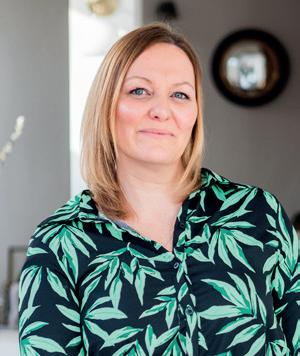
By Natalie Mackenzie, brain injury expert
Many of us notice that our memory isn’t quite what it used to be, especially as we grow older. It’s perfectly normal to forget small things from time to time, like what you walked into a room for, or the name of that film you watched last week. But when we start forgetting more important things or find it hard to pay attention and think clearly, that’s when it becomes a bit more of a worry.
By following some simple tips, we can all give our brains the best chance of staying effective, no matter our age and by doing so keep our memory skills functioning well.
Getting a good night’s sleep is key for keeping your mind clear. Experts have found that those who don’t sleep enough often find it harder to think clearly and use words well. Interestingly sleeping too much has the same negative effects as lacking sleep.
Caring for your body means caring for your brain, too. Research has shown that people who keep active tend to have healthier brains than those who are more sedentary. Movement aids our ability to remember things. Cardio activities such as running are ideal as they help to clear the brain, consolidate memories and process information.
found that not being in the right weight bracket can be a risk factor for dementia.
But making changes can help your memory; people who have been on the heavier side and have worked hard to lose some of that weight have noticed that their memory gets sharper.
When you’re looking to lose some weight, you want to make sure you’re eating the right stuff. We’ve all heard how the Mediterranean diet helps keep your brain sharp but what matters is that you’re filling up on the good food that keeps your body and brain happy.
“Research has shown that people who keep active tend to have healthier brains than those who are more sedentary.”
Being sociable by signing up for group sports or activities can be great for memory too - it turns out that combining socialising with some exercise can do amazing things for your brain.
Weight isn’t just something you can see on the outside; it can have a big impact on your brain. Researchers have
Build your meals around fruit and vegetables such as broccoli and spinach, strawberries and avocado. Nuts and seeds are a great snack choice and opt for seafood such as fresh Wild Salmon, vibrant Rainbow Trout, and Halibut. Select wholesome oils for cooking and dressings such as rich olive oil and versatile canola oil
Have you noticed that you sometimes perform better when you’re a bit stressed? There’s a sweet spot where a little bit of stress can help the brain work its best, especially when we’re doing tasks that rely on gut feeling rather than deep thinking. When the pressure is on, it can be just what we need to get those creative juices flowing or to solve a problem with a fresh perspective. Deadline dancing and dopamine-seeking brains will often find themselves performing better at this optimal stress level.
But it’s not so straightforward; it depends on what we’re doing. For jobs that need sharp concentration or remembering lots of details, too much stress can make
“Life is busy so utilise technology to offload some of the more mundane mental tasks on your to-do list. ”
things worse. And if you’re really, really stressed? That’s no good for anything - especially memory!
When we get enough sleep, stay active, and eat well, our bodies are more prepared to handle stress. Support from friends and loved ones is important as well during these times.
It may sound counterintuitive when you are struggling to remember things but learning something new can help to keep our memory sharp. You can go big by signing up for an ongoing course or keep it simple by learning one fun fact a day. Problem-solving, cognitive flexibility and critical thinking are all cognitive skills that are utilised when we’re learning something new - learning a language in particular is a brilliant gym workout for the brain. It can kickstart several cognitive processes to keep our memory effective.
Life is busy so utilise technology to offload some of the more
mundane mental tasks on your to-do list. There’s so much technology that can assist with this such as automation, transcribing software and recording, and software for organisation and planning.
Spending time outdoors to get the Vitamin D our bodies need will give pituitary stimulation to aid melatonin secretion. This secretion is key to a good night’s sleep, which aids our cognitive function. You can use a Vitamin D supplement like a Lumie light if it’s difficult to get outside. When it comes to keeping your brain in good shape, there’s no overnight solution, just as there’s no instant way to get fit. But simple consistent changes will benefit your overall health and maximise your memory’s capability.
Natalie Mackenzie is a business strategist for health and wellbeing business, helping health and social care providers grow successful online businesses. With 20 years of experience as a cognitive rehabilitation therapist, Natalie is the CEO & founder of the multiaward-winning BIS Services, which supports families with brain injury or neurological illness. A sought-after media expert, Natalie is a regular press commentator, sharing her expertise in publications such as The Guardian, The Telegraph and The Independent.

A brain game-changer that is both free and simple
Have you ever noticed how going for a walk can help clear your thoughts? It turns out this simple activity is one of the most effective ways to support and improve brain health. Research suggests that walking 8,000 steps daily can reduce the risk of dementia by nearly half. Let’s delve into the remarkable science behind how walking benefits your brain, step by step.
THE BRAIN-ENHANCING POWER OF WALKING Walking does more than move your legs – it triggers a series of biological processes that rejuvenate and strengthen your brain. Here’s what happens with each step:
Your brain thrives on oxygen, and walking boosts your heart rate, enhancing blood flow to the brain. This increased circulation delivers oxygen and essential nutrients to your neurones. For instance, it stimulates the production of brain-derived neurotrophic factor (BDNF), a protein that encourages the growth of new brain cells and supports the health of existing ones.
Imagine your brain as a garden, with BDNF acting as the gardener, fostering neurogenesis (new cell growth) and maintaining neuroplasticity (adaptability of neural connections). This is especially vital in the hippocam- pus – the brain’s memory hub – helping it stay youthful and adaptable.
“Walking triggers a host of protective mechanisms. It reduces chronic inflammation and combats oxidative stress, both of which are linked to cognitive decline”
On a biochemical level, walking triggers a host of protective mechanisms. It reduces chronic inflammation and combats oxidative stress, both of which are linked to cognitive decline. Chronic inflammation, in particular, is recognised as a key contributor to ageing. Regular walking strengthens the immune system and makes the brain more resilient against these challenges.
Additionally, walking helps regulate blood sugar levels and optimises energy use in brain cells, improving their efficiency. It also promotes the release of dopamine and serotonin – the “feel-good” chemicals – while reducing cortisol, the stress hormone. This combination not only lifts your mood but also shields your brain from the daily toll of stress.
These biological effects lead to real-world improvements in various aspects of your daily life:
• Faster thinking and better decision-making: Studies reveal that moderate-intensity exercises like brisk walking can enhance cognitive speed by increasing blood flow to the prefrontal cortex, the brain’s decision-making centre. This makes it easier to tackle complex tasks, whether it’s planning a project or managing a busy schedule.
• Improved memory: Walking regularly has been associated with enhanced episodic memory – the ability to recall past events. Research indicates that walking 40 minutes three times a week can expand hippocampal volume, effectively reversing memory decline by up to two years. This has potential implications for reducing risks of conditions like Alzheimer’s disease.
• Adaptability and resilience: Walking enhances neuroplasticity, improving the brain’s capacity to adapt to changes or challenges. This makes it easier to juggle responsibilities or think creatively in response to new situations.
• Boosted mood and mental wellbeing: Walking doesn’t just benefit cognition – it improves emotional health too. A study in The Journal of Psychiatric Research found that 30 minutes of walking daily significantly alleviated symptoms of anxiety and depression, highlighting its potential as a natural mood enhancer.
• Protection against cognitive decline: Regular walking helps preserve neural pathways and prevents brain shrinkage, lowering the risk of dementia and Alzheimer’s disease. Walking 8,000 steps a day, for instance, can cut the risk of dementia by up to 50%, making each step an investment in long-term cognitive health.
The beauty of walking lies in its simplicity. There’s no need for fancy equipment – just a pair of comfortable shoes and the resolve to get moving. Whether it’s a brisk morning stroll, a lunchtime walk in the park, or a leisurely evening wander with loved ones, each step contributes to a healthier, sharper mind.
Remember, walking isn’t merely exercise – it’s a powerful form of brain training that can elevate your health and wellbeing, one step at a time.
These books offer practical advice, inspiration, and strategies for women in business, from boosting confidence to building resilience, fostering creativity, and excelling in mental health. If you haven’t yet, add these books to this year’s reading list.
Ten Times Calmer by Dr Kirren Schnack
Oxford-trained NHS psychologist
Dr Kirren Schnack provides practical tools to manage anxiety. With 20 years’ experience, she offers a first aid kit of techniques to ease stress, tackle trauma, and handle uncertainty. Each of the ten chapters guides you towards an anxiety-free life—helping you understand your emotions and regain control with ease.
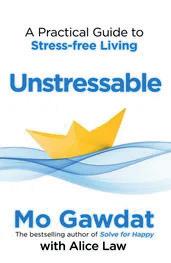
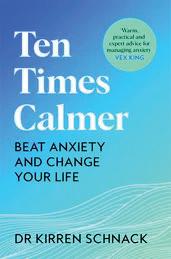
Unstressable by Mo Gawdat
Mo Gawdat and Alice Law tackle the “stress pandemic,” revealing that chronic stress is predictable and preventable. This follow-up to Solve for Happy blends engineering, psychology, and neuroscience to help reframe negative thought patterns. With practical exercises, it equips you with the skills to manage stress and regain control of your well-being.
by Oprah Winfrey & Dr Bruce Perry
Oprah Winfrey and Dr Bruce Perry explore how childhood experiences shape who we become. Through personal conversations and the latest brain science, they shift the focus from blame to understanding, creating space for healing. With compel-
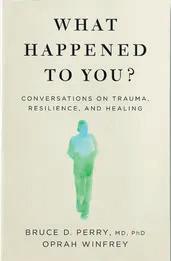
ling narratives, this book highlights our ability to transform after adversity, offering insight into behaviour, resilience, and personal growth.
How to Feel Better by Cathy Rentzenbrink
Life’s ups and downs are inevitable, but Cathy Rentzenbrink offers warm, compassionate guidance on how to navigate them. Rather than prescribing solutions, she provides comfort, covering topics like coping with bad news and wisdom for her son. This is essential reading for anyone facing upheaval or simply seeking reassurance in life’s daily challenges.
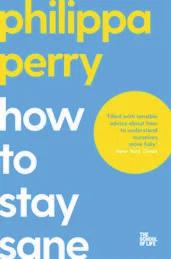

Psychotherapist Philippa Perry explores four key principles to improve emotional well-being: self-observation, relationships, stepping out of your comfort zone, and redefining yourself. While there’s no formula for guaranteed sanity, these insights can help you overcome difficulties, increase self-awareness, and find greater fulfilment. A practical, thoughtful guide to becoming a little less troubled and a lot more content.
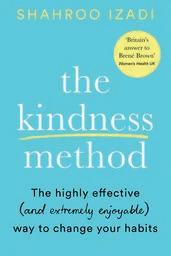
The Kindness Method by Shahroo Izadi
Lasting change starts with self-kindness. Behavioural Change Specialist Shahroo Izadi shares a compassionate, empowering approach to breaking habits—whether it’s weight loss, reducing alcohol, or improving relationships. Developed from personal experience and professional training, The Kindness Method helps you create sustainable change by treating yourself with the patience and care you truly deserve.
The Book of Hope by Jonny Benjamin
learning to trust yourself. Activist Glennon Doyle shares her journey of shedding external pressures to find true happiness and peace. Untamed is both an inspiring personal story and a wake-up call to start living authentically for ourselves.
for Beginners by Eleanor Morgan

Mental health advocate Jonny Benjamin, MBE, and Britt Pflüger bring together voices from actors to activists, sharing what gives them hope. This uplifting collection provides comfort and solidarity, reminding readers that they’re not alone. With powerful stories on mental health, resilience, and seeking help, The Book of Hope is a source of light in difficult times.
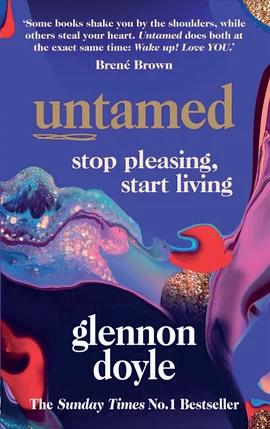
Untamed by Glennon Doyle
This New York Times bestseller is a powerful memoir about breaking free from societal expectations and
Eleanor Morgan explores anxiety as an inherent part of human nature rather than a disorder. Blending personal experience with scientific insight, she unpicks the complexities of anxious thinking and why we worry. This thoughtful, relatable book sheds light on anxiety’s role in evolution while offering a deeper understanding of how it shapes our daily lives.
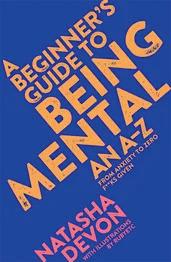
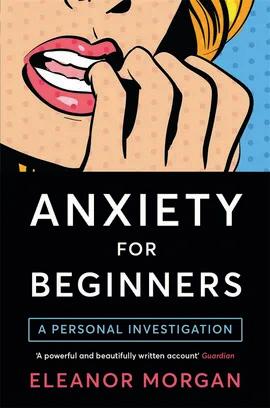
A Beginner’s Guide to Being Mental by Natasha Devon
Natasha Devon takes readers on a witty, insightful journey through the A to Z of mental health—from Anxiety to Zero Fucks Given. Mixing expert advice with hilarious personal stories, she covers topics like therapy, self-esteem, and social media. This sharp, entertaining book reminds us that no matter what we’re going through, we’re not alone.

By KELLIE MILLER
Alison Coaten’s sculptures connect with the thread of folklore (folk = people, lore = knowledge), linking us to people’s stories, traditions and cultures passed down through the generations by various means of expression.
She is fascinated by the human desire to make sense of existence through religion, myth and folklore, as well as the use of art to create concrete images of worship in the form of icons and idols.
She says, “I use imagery to help create a sense of familiarity within my work, and this imagery is reworked using secular and personal iconography.”
When she encounters striking imagery, it stays with her and nags until she is compelled to create a sculpture. Her recent creation, Joan, was inspired by a painting of Joan of Arc by John Everett Millais.
“I
use imagery to help create a sense of familiarity within my work, and this imagery is reworked using secular and personal iconography”

“The piece Fiadh, meaning ‘deer’ or ‘wild’, came from Celtic tales of fairy cattle herded by women who shapeshifted into a deer.”
This passion has also led her to depict strong female archetypes based on remarkable and formidable women, such as the legendary Pope Joan, who purportedly reigned as Pope for two years in the Middle Ages. While the story was believed for centuries, scholars now consider her a fictional character. Regardless, this is another indication of the strength of storytelling in Alison’s work.
Other recent works explore our relationship with animals and play with the ideas of Madonna and Child, with images found in Flemish art and the Reserve heads of ancient Egypt.
The piece Fiadh, meaning ‘deer’ or ‘wild’, came from Celtic tales of fairy cattle herded by women who shapeshifted into a deer. The piece can be viewed as an approach from one side and a transformation and integration from the other.
Her intrigue in Egyptology can be sensed from the energy of the forms she uses. The Egyptians believed that the soul lived within the body, so they preserved it to keep the spirit intact. Their glorification of life after death is signified by the pyramids and their contents of possessions and objects of worship. To reflect this, Alison sometimes buries found objects and meaningful items in her pieces. The sound of these items moving around can be heard when her sculptures are picked up.
“Joan”

Another example of her attraction to this culture and the afterlife is the concept of preservation. The Egyptians would mummify their dead. She also uses a preservation technique for her sculptures, which includes using glass eyes, blown or hand-painted and intended for taxidermy; this gives her sculptures a human feel, bringing them to life.
Kellie Miller is an artist, curator, critic and gallery owner. www.kelliemillerarts.com



“Step inside, and you’re greeted by a space that full of character. Where vintage charm comes with a playful twist and plush elegance”
By Tess de Klerk
In a city known for its mix of bohemian charm and coastal cool, No. 124 GuestHouse feels like the perfect embodiment of Brighton itself. Set in a trio of restored townhouses along the iconic seafront, this hotel is the kind of place where every corner tells a story, and every detail feels like it’s been chosen with both care and a sense of fun.
Step inside, and you’re greeted by a space that full of character. Where vintage charm comes with a playful twist and
plush elegance. From the cozy lounge and bar with its eclectic furniture and art from local artists to the courtyard adorned with twinkling lights, there’s a sense of ease that instantly puts you in relaxation mode.
And the design? Think natural textures, pops of bold colour, and just the right amount of quirk. Brighton’s heritage runs through every corner of this hotel, but the design is anything but predictable.


Our room was a perfect blend of comfort and personality. Huge sea-view windows, a mix of rattan finishes, vibrant art, and onion-dome light fixtures gave the space a laidback but stylish vibe. A miniature beach hut—yes, a beach hut—housed all the tea and coffee essentials (including fresh milk), while a Crosley record player and a curated selection of vinyl added personal touches that made the room feel like our own little haven.
When it comes to unwinding, they’ve thought of everything. Blackout curtains for a proper lie-in, a duvet so soft it feels like a hug, and a rainfall shower stocked with Wildsmith products to help wash away the day. It’s the kind of place where even a quick break feels restorative.
“Our room was a perfect blend of comfort and personality”
The rooms at No.124 range from cozy doubles to indulgent suites with sea views or even private hot tubs. And while the larger rooms steal the show with their extra features, the smaller ones don’t skimp on charm or comfort; all share the same attention to detail that makes staying here feel special.
For those craving a bit of extra relaxation, the Field Trip Spa will hit the spot. Opening in February 2025, the spa will offer treatments that lean into natural, sustainable products.
And then there’s the pantry – a playful touch that sets No.124 apart. Stocked daily with fresh-baked treats, and an array of sweeties and drinks that will turn you into a kid in a candy shop again – a free candy shop, that is, since it’s all complimentary. Who can resist?
Read all about Pearly Cow over on the next the page; we enjoyed it so much that I’m writing it its own review. Breakfast


was also superb and beautifully presented. I suggest trying the chia mango pot with coconut – absolutely delicious.
The team at No.124 deserve a shoutout. They strike that rare balance of being warm, helpful, and refreshingly unpretentious. Whether they’re sharing tips on what’s happening around town or chatting while mixing a brilliant cocktail, the staff here make you feel like more than just a guest.

Accessibility: There is a guest room adapted for accessibility with a roll-in shower. The lift inside accesses all floors while a ramp can be provided for the entrance.
Family-friendly: Yes, cots, z-beds and kids menus are available while the extra touches such as polaroid cameras and Yoto players are sure to keep the little ones entertained.
Dogs: Four-legged companions are welcomed with treats, dog beds and blankets (£25 per pooch per night).
Cost: Our room was a Sea View Guest Room which starts at £232 pn in February, including breakfast.
Brighton’s best bits are all just steps away, whether you’re wandering the historic Lanes, exploring the shops in North Laine, or simply enjoying a walk along the beach. And when it’s time to return, No.124 feels like the perfect spot to land.
No.124 is a place that brings together everything that makes Brighton special—creativity, warmth, and a little bit of cheekiness. Whether you’re in town for a weekend of seaside strolls or a longer stay to soak up the city, this guesthouse is the kind of place that makes you wish you’d booked just one more night.
No.124, 124 Kings Road Brighton BN1 2FA www.guesthousehotels.co.uk/no-124-kingsroadbrighton/the-city-of-brighton/

I’ll be back at...
By Tess de Klerk
Pearly Cow restaurant at No.124 in Brighton has quickly made a name for itself as one of the city’s must-visit dining spots, showcasing the very best of what Sussex has to offer. The menu, split into "Ice" and "Fire," strikes a perfect balance between fresh, raw seafood and expertly cooked meats, all served with a focus on simple, honest cooking that lets the ingredients shine.
Pearly Cow’s commitment to sourcing locally is clear in every dish. From Sussex beef to Whitstable oysters, the produce is as fresh as it gets. My meal started with Whitstable oysters, presented on a dramatic ceramic clam shell, their briny flavour highlighting just how fresh they were. Another standout starter was the scallop cured in yuzu and cucumber. The sweetness of the scallop worked beautifully, with the tangy yuzu and sharp pickled silver-skin onions, making it as vibrant in taste as it was in presentation.
For mains, the 45-day salt-aged ribeye steak was nothing short of outstanding. Cooked over an open flame, it was perfectly tender and packed with deep, smoky flavour. The sauces—peppercorn and chimichurri in my case—added just the right amount of richness, while the glazed onion and
“From Sussex beef to Whitstable oysters, the produce is as fresh as it gets.”

marrow-filled bone made it even more indulgent. Another highlight was the slow-braised short rib of Sussex Wagyu beef, served with smooth and creamy pommes mousseline. The Wagyu’s melt-in-your-mouth texture, paired with the richness of the mash, made it an absolute winner.
The side dishes were just as memorable. The beef fat chips were a revelation, perfectly crisp and layered, offering a depth of flavour that’s rare in something as simple as chips. Fire-grilled butternut squash wedges with tandoori seeds provided a smoky sweetness that complemented the mains beautifully.


While dessert isn’t the primary focus of Pearly Cow, it’s worth saving a little room for their inventive offerings. The mascarpone crème brûlée with cherry sorbet was a well-balanced end to the meal, combining creamy richness with a refreshing sharpness.
The drinks menu is just as impressive as the food. The stylish bar area is the perfect place to start your evening, with cocktails that are crafted with real care. My Sage Soiree, a tequila and apricot concoction with a herbal twist, was a particular favourite, while my partner’s classic margarita hit all the right notes. The wine, beer, and champagne options are equally top-notch, ensuring there’s something for everyone.
Service was a real highlight of the experience. The team was attentive without being overbearing, super knowledgeable


about the menu, and clearly passionate about what they do. Their recommendations were spot-on, and their friendly, relaxed approach made the evening all the more enjoyable.
The location is another big draw. Set right on Brighton’s seafront, with views of the iconic West Pier, the setting perfectly ties in with the restaurant’s coastal influence. Inside, the stylish décor creates a warm and welcoming vibe, making it a great spot for anything from a special occasion to a relaxed dinner with friends.
For those looking to treat themselves without breaking the bank, the set menu is fantastic value. Available Monday to Thursday in the early evening and Friday lunchtimes, it offers two courses for £28 or three for £32, making it an ideal introduction to what Pearly Cow has to offer.
In short, Pearly Cow is a place where incredible local produce meets skillful, unfussy cooking in a relaxed yet polished setting. Whether you’re enjoying their perfectly cooked steaks, the freshest seafood, or an expertly made cocktail, the attention to detail and passion shines through. With excellent service and a stunning location, it’s no surprise Pearly Cow has quickly become a Brighton favourite.
Pearly Cow, 123 Kings Road Brighton BN1 2FA www.pearlycow.co.uk/pearly-cow-brighton
“The
team was attentive without being overbearing, super knowledgeable about the menu, and passionate about what they do.”

EASTBOURNE STARGAZING AT BEACHY HEAD
Experience the breathtaking night sky at Beachy Head, one of Sussex’s most iconic spots for stargazing. Join expert guides as they share insights into constellations, planets, and other celestial wonders. This event is family-friendly, so bring binoculars, telescopes, and warm clothes for a magical night under the stars.
February 8th
Beachy Head, Eastbourne, East Sussex visitsoutheastengland.com
CHICHESTER PRIDE & PREJUDICE (SORT OF)
This witty and refreshing take on Jane Austen’s beloved classic blends sharp humor, music, and modern twists. Celebrated for its originality, the production brings the timeless story of love and societal norms to life. Perfect for both Austen fans and theater newcomers, this show promises laughter, heart, and a touch of satire.
February 11th–15th
Chichester Festival Theatre, Chichester, West Sussex cft.org.uk


UCKFIELD ICE SKATING AT BLUEBELL RAILWAY
Experience the charm of Sussex’s historic Bluebell Railway while enjoying a winter wonderland. A pop-up ice rink at the station provides a unique opportunity for visitors of all ages to skate amidst the nostalgia of vintage steam trains. Warm up with hot chocolate or mulled wine in the cozy café afterward.
February 15th–23rd
Bluebell Railway, Uckfield, East Sussex bluebell-railway.com
WAKEHURST NATURE HEROES: DINO DETECTIVE
Wakehurst’s Nature Heroes series invites families to embark on an exciting prehistoric adventure. Kids will become “Dino Detectives,” uncovering fascinating facts about dinosaurs, fossils, and evolution. With interactive workshops, scavenger hunts, and plenty of outdoor exploration, this event guarantees a fun, educational day for budding paleontologists.
February 15th–23rd
Wakehurst, Haywards Heath, West Sussex kew.org/wakehurst

BRIGHTON BRIGHTON SCIENCE FESTIVAL: FUTURE FRONTIERS
Step into the future at Brighton Science Festival’s Future Frontiers exhibition, where cutting-edge innovations meet hands-on exploration. Featuring expert talks, live demonstrations, and interactive displays on AI, space travel, and sustainable technology, this
festival is perfect for curious Don’t miss the spectacular
February 16th-18th
Brighton Dome, Brighton brightonscience.com

SURREY HILLS
SURREY HILLS WINTER WALK AND WINE TASTING
Explore the serene beauty of the Surrey Hills on a guided winter walk. After soaking in the breathtaking landscapes, enjoy a curated wine-tasting session at a nearby vineyard. Sample locally produced wines while learning about the area’s rich viticultural history. A delightful blend of nature and indulgence awaits.
February 10th
Surrey Hills, meeting point details upon booking surreyhillsvineyards.co.uk
GUILDFORD GUILDFORD COMEDY NIGHT
Laugh the night away at Guildford’s premier monthly comedy showcase, featuring a lineup of talented comedians from across the UK. Held at The Electric Theatre, this lively event is a perfect way to unwind with friends. Enjoy witty banter, sharp observations, and bellylaugh-inducing performances.
February 8th
The Electric Theatre, Guildford, Surrey electric.theatre.co.uk


DORKING SURREY WILDLIFE TRUST CONSERVATION DAY
Connect with nature while making a difference at this hands-on conservation day. Led by the Surrey Wildlife Trust, participants will learn practical skills like tree planting and habitat restoration while contributing to vital environmental projects. A rewarding and impactful way to spend the day outdoors.
February 27th
Norbury Park, Dorking, Surrey surreywildlifetrust.org
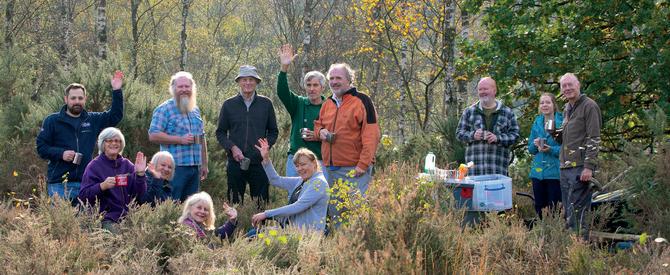
LEWES CREATE YOUR OWN ATTAR PERFUME
Led by perfume maker, Nancy Meiland, this exclusive workshop is a deep dive into the world of scent while making your own perfume attar. An attar is an ancient, Indian tradition of a highly concentrated blend of botanicals. Be guided by expert nose, Nancy Meiland to 'sense through scent' and create your own perfume attar. This 90-minute workshop, situated in Lewes includes a perfume talk, a complimentary drink and the final presentation of your personalised creation.
February 15th
The Needlemakers, Lewes www.visitlewes.co.uk/whats-on/ create-your-own-perfume-attar-p2282311

HOVE PERSONALISED GIFT MAKING CLASS & BUBBLY AT CHARLIE-DOODLE
Looking for something unique for Valentine’s Day? Learn how to make your very own stylish personalised Gifts for yourself or a loved one using vintage maps, comic books, music sheets or typographic initials. Choose one of the following items to create: personalised silver plated cufflinks and personalised silver plated pendant and chain.
14 February 14th 14 Wilbury Rd, Hove, BN3 3JN charlie-doodle.live.baluu.co.uk

